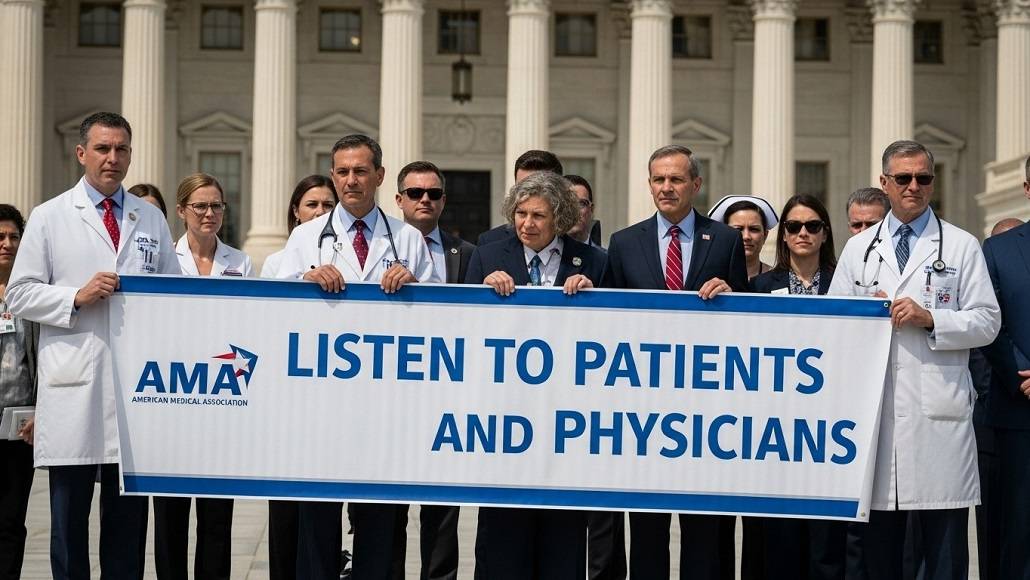The American Medical Association has spoken out against the budget reconciliation draft from the Senate Finance Committee on June 16. They say that cutting Medicaid and CHIP (the Children’s Health Insurance Program) could lead to the shortage of doctors and make it harder for people to get care, especially in rural and underserved areas.
The draft law makes the House’s already-controversial version, which passed on May 22 and included almost $1 trillion in cutbacks to Medicaid and the ACA marketplace health program, even worse.
On June 20, AMA CEO and executive vice president James Madara, MD, wrote to U.S. Senators John Thune and Charles Schumer to criticise the draft’s proposed Medicaid administrative obstacles, extra costs for patients, and constraints on provider financing. Dr. Madara also didn’t like changes to the student loan policy, like limits on how much you can borrow and not being able to get Public Service Loan Forgiveness if you live in a certain area.
“Instead, all resident physicians should have access to PSLF during their training years since, regardless of whether they are working in a public, private or nonprofit setting, they are working for low wages to better public health,” Dr. Madara said in the letter.
Dr. Madara also said he was worried about the proposal’s lack of safety measures for AI in healthcare and the fact that it didn’t include a House-passed plan to link Medicare payments to inflation. He said he would work with Congress to make sure that there are enough doctors and that patients can get care.
“By changing Medicaid and CHIP eligibility criteria, reducing their funding and eliminating the Medicare payment provision included in the House-passed reconciliation bill, this legislation risks making matters worse for an exceptional number of people including seniors, pregnant women and persons with disabilities,” AMA President Bobby Mukkamala, MD, also said in a June 20 news release. “As work continues on this bill, we urge senators to listen to patients and physicians before making changes that reduce access to care.”



















